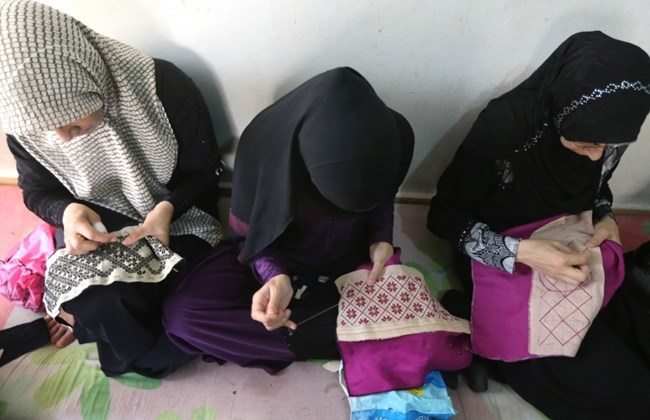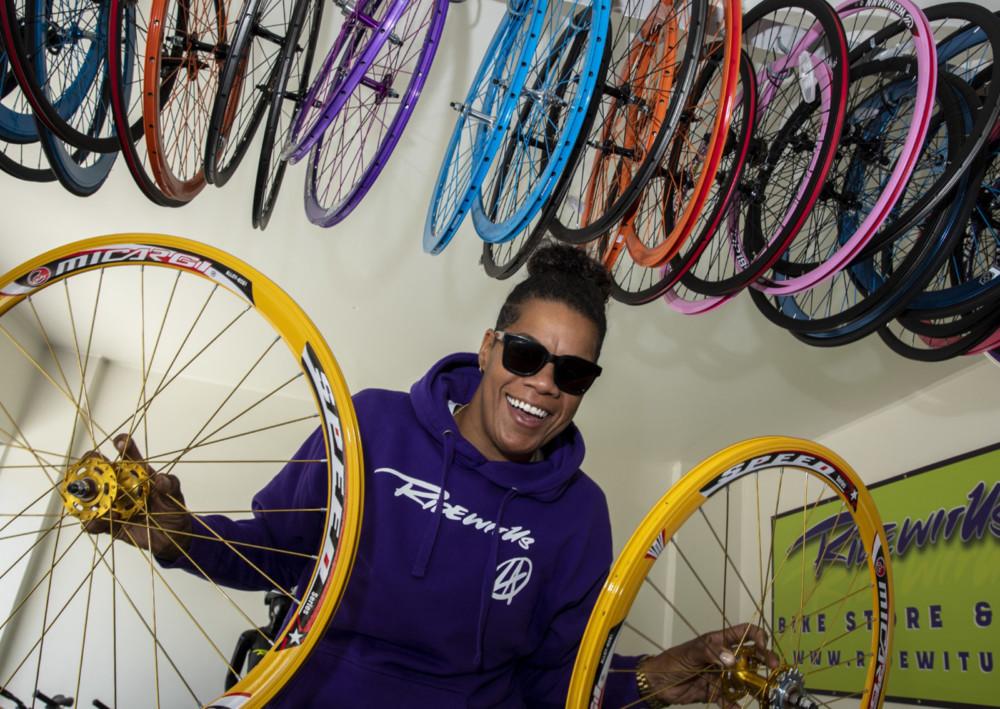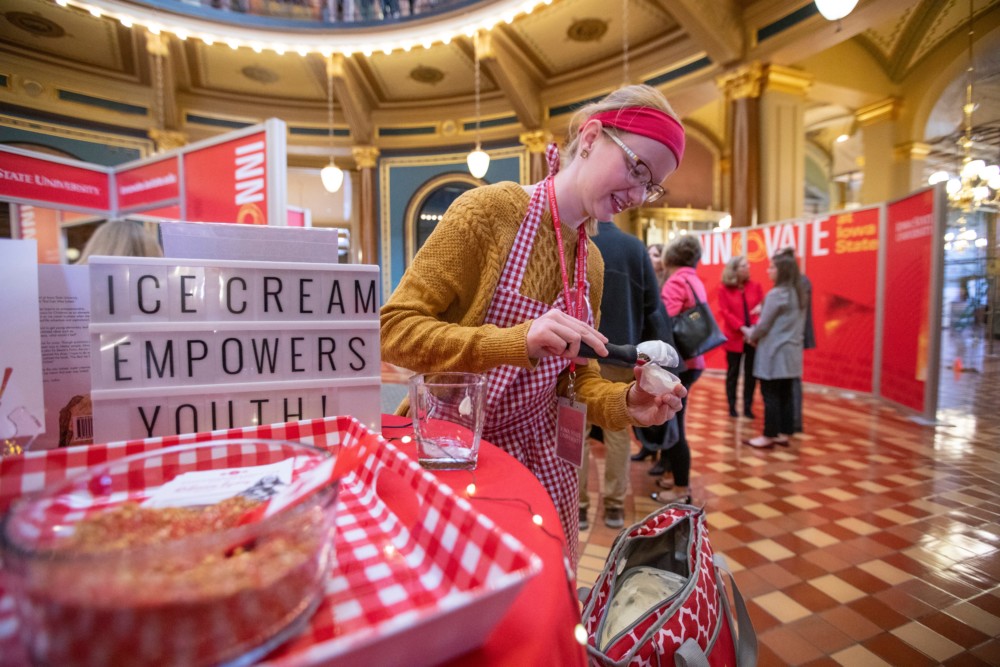By Mazin Sidahmed
The Daily Star, Beirut, Lebanon.
BEIRUT
“I think it looks great on you,” Mushfa tells a customer who is mulling over the purchase of a pair of trousers. Sensing the uncertainty, Mushfa, who moved to Lebanon from Syria two and a half years ago, rustled around her store to find more options for her indecisive customer.
Mushfa’s store, named Al-Rawan after her daughter, contains a wide variety of clothes, children’s toys and miscellaneous goods. It’s only a few months old and Mushfa herself is quite surprised at how successful she’s been in running it.
Mushfa is a product of a program at Basmeh and Zeitooneh, a grassroots community-based organization set up by Syrians.
It has a large community center in the Palestinian refugee camp of Shatila that teaches women entrepreneurial skills and provides participants with a grant to launch their own business ideas.
The program aims to empower women financially and provide psychological support in order to help them gain more independence.
The training portion of the program lasts two and half months, and women are taught the basics of entrepreneurship such as how to buy, sell and barter for goods with confidence, as well as how to treat customers to ensure they come back, among other things.
The top students in the class were then invited to submit proposals for their own business ideas to win $800 grants.
One of the program’s coordinators, Awatef, who is also a graduate of the program, said the women experience a great deal of personal growth throughout the training.
“The program really helped the women grow in character and believe in themselves,” she said.
Basmeh and Zeitooneh completed a pilot of the project a few months ago and 40 of the participants submitted successful grant proposals with which 31 businesses were established.
These included a nursery set up by four of the women, a sweets shop and Mushfa’s store.
However, despite popular demand to repeat the program, Basmeh and Zeitooneh are currently facing a funding crisis.
The community center, which offers a range of services from schooling to medical treatment, is facing the possibility of cutting the grant program as funding has dried up. International donors often neglect programs based in Beirut as it’s considered comparatively wealthy, despite the dire circumstances in Shatila.
To help salvage the program and many of the community center’s other initiatives, Basmeh and Zeitooneh have setup a Zoomal crowd-funding campaign titled #ShatilAlive aimed at raising $125,000.
For Awatef, it’s imperative that the program continues, as it has had a large impact on the community. She explained that most of the women who took part in the program had never worked before.
The participants were a mix of women of Lebanese, Palestinian and Syrian origins, all from the Shatila camp, which has an extremely high unemployment rate.
For many of the female Syrian refugees, there was no need for the women to work in Syria as the cost of living was low and their husbands’ income was enough, Awatef said.
However, upon coming to Lebanon, drawing from two incomes has become a necessity. Many of the women have also become the main breadwinners in their families, as their husbands have either been killed or injured in the war.
Mirvat, who started her own crochet store after completing the program, is currently in Lebanon while her husband and son are in her native Ghouta in Syria.
Crochet was a hobby of Mirvat’s growing up which she’s now turned into a business.
She used the grant to buy wool goods as she noticed there was a shortage in Shatila. She also works at a small place in the textile district of Qasqas in Beirut in which she takes tailor orders, and has even begun to teach lessons. Her work has also served as an escape.
“I’m trying to focus on work,” Mirfat told The Daily Star. “We [all the women in the program] are trying to change things in our lives and bring peace to ourselves through work.”
Awatef took part in the program and after completion joined the administration of Basmeh and Zeitooneh. Awatef, who is also Syrian refugee, explained that the program gave the women — herself included — a sense of community and belonging that can be elusive to many people displaced in Lebanon.
“The program made us feel like there were some people that were asking about us,” Mushfa said. “Finally there were some people that were helping us that really cared about us.”
Basmeh and Zeitooneh’s crowd funding campaign is at their Zoomal page: http://www.zoomaal.com/projects/shatilalive.

















































































































































































































































































































































































